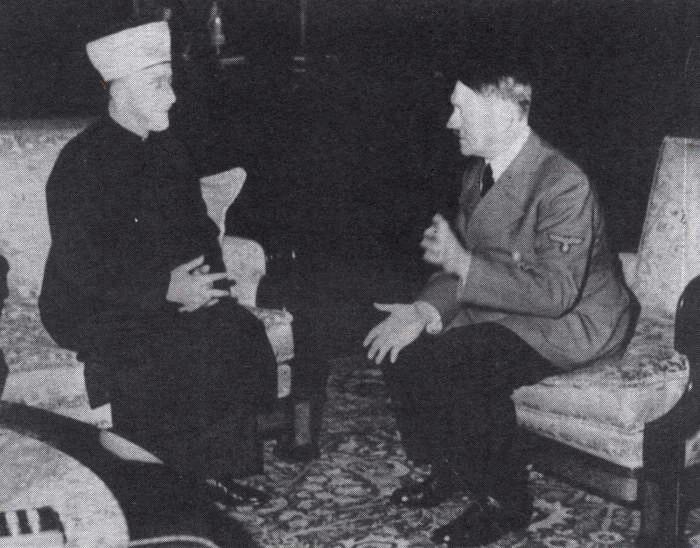The first anniversary of the death of historian John Lukacs coincided with the arrival in Spanish bookstores of the reissue of one of his key books:
Five Days in London, May 1940
.
The book first appeared in English in 1999 and was translated in 2001 by Ramón García for the Turner publishing house.
It is an excellent occasion to reread it or, if not, to read it for the first time.
John Lukacs is a very interesting author, as well as a great storyteller.
Catholic and enemy of passing fashions, he defined himself as a materialistic idealist and as a historian "somewhat unclassifiable."
He did not believe in history as a science, nor as a social science, but he did believe in its proximity to literature, and he did not establish boundaries between academic historians and amateurs.
For him, history was, above all, the knowledge of human beings by other human beings.
What people think and thought was at the center of their interest.
He tried, throughout his extensive work, to respond to what he himself called the "hunger for history" in contemporary societies.
Born in Budapest in 1924 and immigrated to the United States in the late 1940s, Lukacs was a professor of history at Chestnut Hill College in Philadelphia for decades.
He died a little more than a year ago, in May 2019. He is the author of some thirty books, dedicated mainly to World War II and its main actors, especially Hitler and Churchill.
Some have been translated into Spanish, in Turner: the aforementioned
Five Days in London, May 1940
, as well as
The Hitler of History, June 1941: Hitler and Stalin
and
Blood, sweat and tears: Churchill and the speech he won a war
.
In the same publishing house a brief history of the Nineteenth century (
minimal history of the twentieth century
) and a couple of more methodological and personal works
have seen the light
:
The future of History
and
Last wills.
Memoirs of a historian
.
In Editorial Sombra
George Kennan
has been published
: study of a personality
.
For now, some important volumes on historical consciousness, the year 1945, Churchill, the United States in the 20th century or populism and democracy remain unpublished in our country.
John Lukacs warns, in
Five Days in London, May 1940
, that Hitler could win World War II in 1940 or 1941. He was not doomed in advance to lose it.
The last days of May 1940 were, in this sense, dramatic.
While Churchill became the new English Prime Minister on May 10, replacing Neville Chamberlain - the main defender between 1937 and 1939 of the policy of temporization - the same day the Hitler conquest of Western Europe began.
A week and a half later, the German offensive was proving a success - with Hitler as the first surprise, who stopped the unstoppable advance towards Dunkirk - and the Franco-British retreat towards the Atlantic coast threatened a tragic outcome.
As the 23rd was drawing to a close, nearly a quarter of a million British soldiers were trapped and encircled on the continent by the Germans.
Boulogne had already fallen and Calais was besieged;
the operation at Dunkirk was, at the time, a mystery.
The French rulers deserved little trust and the Americans looked the other way, Belgium was out of the game and Mussolini, as if that were not enough, showed that he would soon enter the conflict aligned with Germany.
This work recounts the pulse within the British War Cabinet between Winston Churchill and Lord Halifax, Foreign Minister, between June 24 and 28 regarding a possible negotiation with Hitler.
It was a conflict between different rights, in which the pragmatism of Halifax and the Europeanism of Churchill were not minor issues.
Also part of this restricted cabinet were Chamberlain and the Labor leaders Clement Attlee and Arthur Greenwood.
After many meetings and proposals and after much tension and the fear of resignations, which would have generated a deep ministerial crisis, Churchill ended up announcing that, whatever happened in Dunkirk, Great Britain would not negotiate with Hitler and would continue to fight.
Curiously, Churchill did not address these delicate questions in his celebrated memoirs.
In the days that followed, Dunkirk ended up becoming a partial success within an immense failure.
Churchill, who when he became head of government - the king and some conservatives preferred Halifax - was not at his best moment of popularity, progressively established himself.
The author dedicates a chapter to each of these half ten days, from May 24 to 28, preceded by another, introductory type, and a final section where the consequences of the decisions taken and the evolution of events are explored warlike.
In addition to the discussions in the War Cabinet, the political and war situation is analyzed, as well as the journalistic reports and opinion polls by Mass-Observation, which are complemented by numerous memorial testimonies from writers, artists, politicians and the military.
The silence of the press and the general ignorance of the English about the real situation in their country is surprising.
Be that as it may, in those last days of May 1940, says John Lukacs, Winston Churchill did not lose the war: “At that time and in that place, the salvation of England, of Europe, of Western civilization would have been inconceivable without him. ”.
Five days in London, May 1940.
John Lukacs.
Turner, 2020. Translation by Ramón García.
229 pages 17 Euros.

/cloudfront-eu-central-1.images.arcpublishing.com/prisa/77GZFTR7PNGEZPQ3TGFISVN4CA.jpg)







